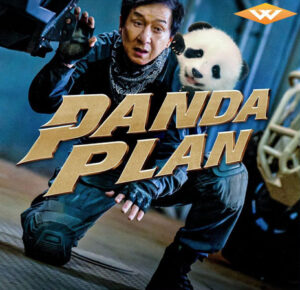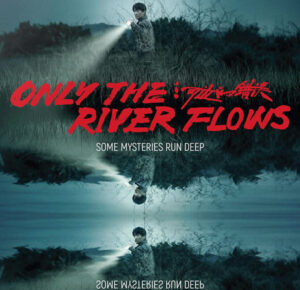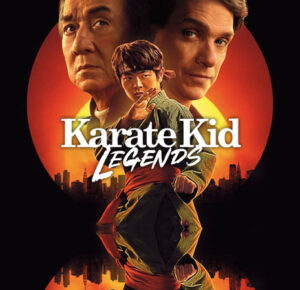Director: Teddy Chen
Cast: Donnie Yen, Bai Bing, Charlie Young, Wang Baoqiang, David Chiang, Alex Fong, Zhang Lan Xin, Stephen Tung Wei, Chin Kar Lok, Xing Yu, William Chan, Raymond Chow, Nicky Li, Deep Ng, Yuen Bun, Andrew Lau Wai-Keung
Running Time: 100 min.
By Paul Bramhall
After initially being called Last of the Best, and then Kung Fu Killer, Donnie Yen’s fourth and final starring role of 2014 arrives in the form of Kung Fu Jungle. Ironically, both of the movies initial titles are more representative of what it’s about than the final choice, but as Shakespeare once said, “What’s in a name?” Most kung fu cinema fans will be familiar with the 1997 Seasonal Films HK-US co-production Bloodmoon, in which Gary Daniels plays a cop on the tail of Darren Shahlavi, a serial killer going around challenging martial artists to death duels. While Bloodmoon was a simple kung fu flick with no higher ambitions, Kung Fu Jungle takes the same idea, and tries to incorporate extra meaning into it by adding in the concepts of martial arts philosophy and principals.
Yen always shines brightest when he’s working with a director who knows his stuff, and here he’s once again paired with Teddy Chen, who he collaborated with on 2009’s Bodyguards and Assassins. The pair make a good team, and Yen’s performance somewhat echoes that of his role in Wu Xia in that his character is one who’s turned away from fighting, rather than the hot headed roles he’s most famous for in his career.
In Kung Fu Jungle, he plays a prisoner who’s been jailed due to accidentally beating an opponent to death. When the news gets to him of a martial artist he once knew being murdered in mysterious circumstances, Yen insists that he knows who the killer is and that the police, led by Charlie Young, should let him out so that he can help to find the culprit. It should come as no surprise that before long, they agree to do just that, however what may come as a surprise is exactly how closely Yen sticks to only helping them out.
Kung Fu Jungle arguably marks the first time when he noticeably takes himself out of the action spotlight with, save for a couple of brief skirmishes, the only real fight he plays a significant part in being the finale, but we’ll get to that later. With Yen taking a sideline on the action front, it’s left to the kung fu serial killer to deliver what most of the audience for this type of movie will be checking in for – the fights. Thankfully this role is played by Wang Bao Qiang, here facing off against Yen for the second time in the same year after they both starred in Iceman 3D together.
Bao Qiang trained in the Shaolin Temple as it was his dream to be a kung fu movie star, and after his career has seen him starring in mostly non-martial arts roles, it seems that 2014 is the year that his dream is finally coming true. His murderous rampage has him taking on kung fu masters using whatever martial arts they’re proficient in, which translates to a brief but intense kicking showdown with Xing Yu, a weapons duel with Fan Siu Wong, and of course a showdown with Yen himself. With his character having a handicap of being born with one leg shorter than the other and a tragic past, Bao Qiang plays an effectively menacing antagonist to Yen’s peace seeking prisoner, and the two roles play off each other well.
While the fight scenes do employ some wire work, it’s mostly used to accentuate falls rather than being used for any gravity defying kicks, and as a result its use is never particularly jarring. For the audience that like their fight scenes grounded, the good news is there’s nothing here that comes close to the absurdity of the fights in say, Legendary Assassin, for example. While Yen gained wide acclaim for successfully merging the flow of Hong Kong choreography with the grappling style of modern MMA for movies like Sha Po Lang (aka Kill Zone) and Flash Point, many felt that his work in Special ID moved too much towards the MMA style – a style which is particularly difficult to translate into something that looks exciting onscreen. For the final duel in Kung Fu Jungle, he fully rectifies this, ending the movie with a bang thanks to an impressively lengthy duel with Bao Qiang on a busy highway which throws in everything from fists, feet, grappling, and weapons. It’s so good that even a small dose of dodgy CGI doesn’t detract from the impact.
In many ways Kung Fu Jungle plays like a tribute to not just the Hong Kong movie industry of old, but also the current Hong Kong talent making movies now. Scattered throughout its run time is an almost endless list of cameos from talent both old and new: from Raymond Chow to Bruce Law (suitably playing a truck driver!); Derek Kwok to Andrew Lau; even Jackie Chan and Lau Kar Leung make appearances, albeit on the TV screen. Cameo spotting hasn’t been this much fun since Twin Dragons. Plenty of choreographers are in the mix as well: from old school hands like Yuen Bun and Stephen Tung Wei; to new school faces like Chin Kar Lok and Nicky Li, and I’ve no doubt they all contributed to the action along with Yen who acted as the principal action director.
Of course in true to form style for a Hong Kong movie, there’s also some unintentional goofiness on display that reminds us not to take anything too seriously. One scene has Bao Qiang using his phone in the middle of a steaming hot sauna, as if it’s the most normal thing in the world; another has us believe that the whole cast and crew of a film set would run away in order for two guys to fight each other to the death. My personal favorite moment came when Charlie Young asks Yen if he knows why the killer is committing the murders, and Yen responds back with a perfect poker face, “Because he’s a kung fu maniac!”
However, mixed in with these are enough homage’s to old school kung fu movies that the sum of all its parts equal to a highly enjoyable experience. Chen successfully transplants old kung fu movie tropes, such as Jimmy Wang Yu’s skin toughening technique in movies like Chinese Boxer, into a modern day setting, and the way in which it’s done can’t help but bring a smile to the face. Kung Fu Jungle is a smart movie, one which knows enough about the audience it needs to appeal to, as well as the audience that it wants to appeal to, and it’s a balancing act that not many recent movies have been able to pull off.
Things get effectively meta in the final moments, with Yen’s character delivering a coda that’s not only reminiscent of many of the Shaw Brothers wuxia pian movies, but by extension also seems to reflect his own beliefs of where he’s at in his career. It’s an excellent close to what comes close to being an excellent movie, thankfully washing away the memory of his cringe worthy jumping for joy moments that closed out Special ID at the beginning of 2014. It’ll be interesting to see the type of reviews Kung Fu Jungle receives a few years later when it can be looked at in the greater context of Yen’s filmography, but for now, the movie delivers a worthy high note for both his career and for Hong Kong cinema in a period when they’re few and far between.
Paul Bramhall’s Rating: 8/10























5 Comments